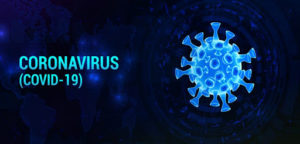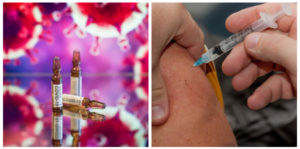Addressing 13 COVID-19 vaccine myths.
Of all the modern medical interventions we have at our disposal, few have been victim to as much falsehood as vaccines. As the world battles a pandemic, stripping the truth from the lies is more urgent than ever.
According to the World Health Organization (WHO), between 2010 and 2015, vaccines prevented an estimated 10 million deaths.
Scientists have worked tirelessly to create safe and effective vaccines to protect us against SARS-CoV-2. Now, as many governments roll out COVID-19 vaccines, scientists and medical experts are facing a new challenge: misinformation and associated vaccine hesitancy.
Some anti-vaxxers — individuals who believe vaccines cause a range of medical ills — dedicate their entire lives to railing against vaccines. In reality, vaccines have saved lives of millions of people.
Vaccine hesitancy is nothing new and, in many ways, perfectly reasonable. For instance, misinformation about the vaccines’ safety and potential effects on the body is rife on the internet. Also, the COVID-19 vaccines were developed unusually swiftly and use relatively new technology.
In this article, we will tackle these concerns head on.
Today, a significant percentage of the United States population, and the world at large, are nervous to take a shot that could save their lives.
In this article, we tackle some of the most common myths associated with the COVID-19 vaccines. Although it will not convince dyed-in-the-wool anti-vaxxers, we hope that this information will prove useful for those who are hesitant. We will cover the following myths:
- The vaccines are not safe, because they were developed so fast
- The vaccine will alter my DNA
- COVID-19 vaccines can give you COVID-19
- The vaccine contains a microchip
- COVID-19 vaccines can make you infertile
- COVID-19 vaccines contain fetal tissue
- People who have had COVID-19 do not need the vaccine
- After receiving the vaccine, you cannot transmit the virus
- Once I have been vaccinated, I can resume a normal life
- The vaccine will protect against COVID-19 for life
- People with preexisting conditions cannot take the vaccine
- People with compromised immune systems cannot have the vaccine
- Older adults cannot have the vaccine
Article highlights:
- The vaccines are not safe, because they were developed so fast.
It is true that scientists developed the COVID-19 vaccines faster than any other vaccine to date — under 1 year. The previous record breaker was the mumps vaccine, which was developed in 4 years.
For instance, scientists were not starting from scratch. Although SARS-CoV-2 was new to science, researchers have been studying coronaviruses for decades.
Also, because COVID-19 has touched every continent on earth, the process of vaccine development involved an unprecedented worldwide collaboration. And, while many scientific endeavors face funding difficulties, COVID-19 researchers received funding from a wide range of sponsors.
Another factor that slows vaccine development is recruiting volunteers. In the case of COVID-19, there was no shortage of people who wanted to help.
Also, under normal circumstances, clinical trials are run sequentially. But in this instance, scientists could run some trials simultaneously, which saved a great deal of time.
In short: identifying the virus was quicker; we already had experience with similar pathogens; technology has moved on since the 1980s; every government on earth had a vested interest; and there were few financial restraints.




